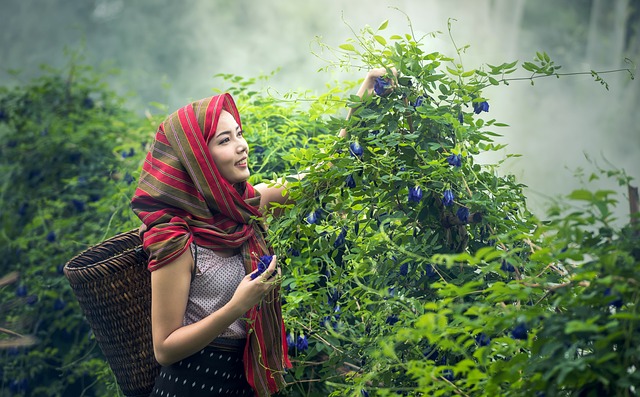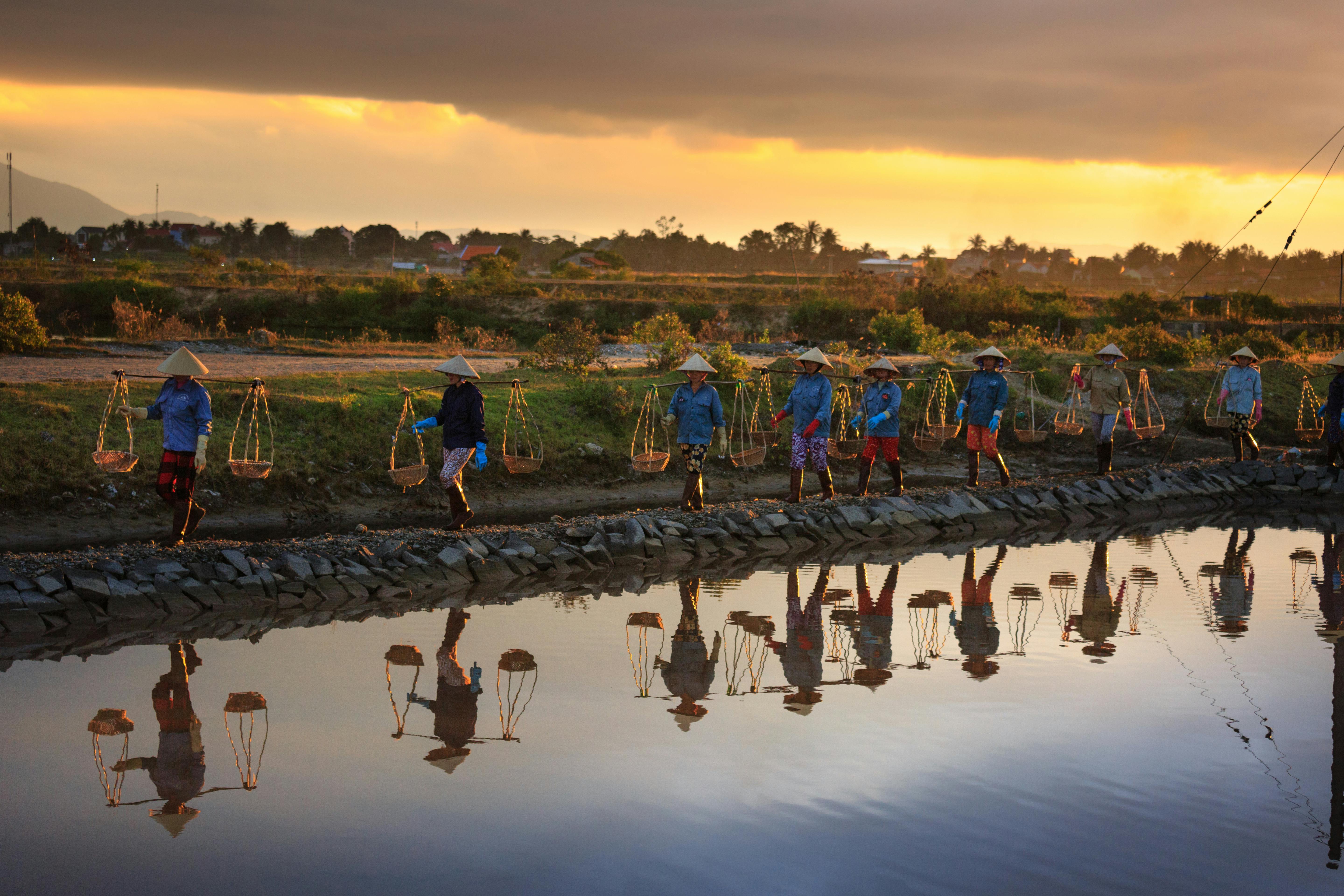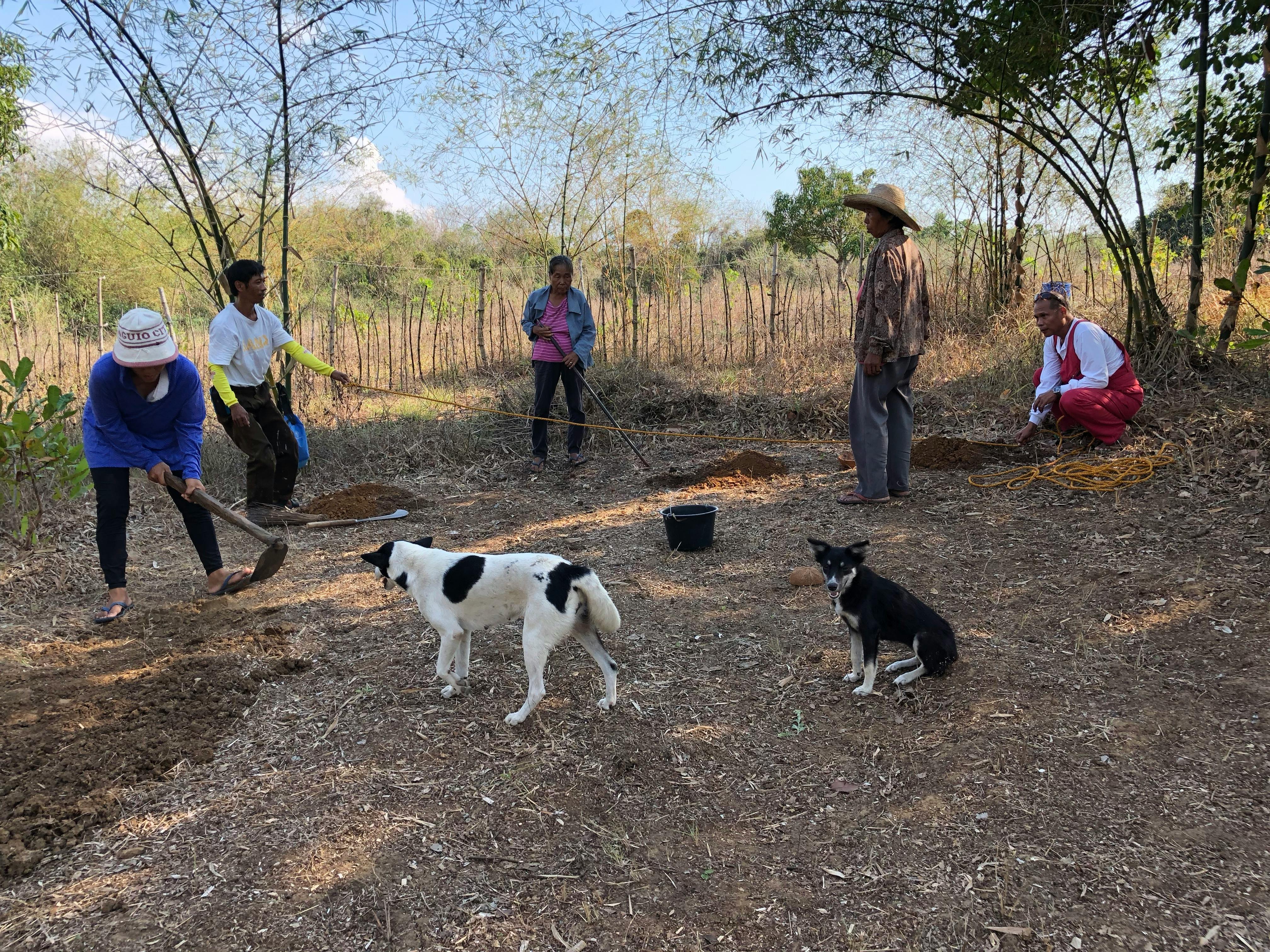What Do Farmers Wear

Farmers have a hard job, and they need to be prepared for all kinds of weather. That’s why it’s important for them to have the right kind of clothing to protect them from the elements. In this article, we’ll take a look at what farmers wear and why it’s so important. We’ll also discuss what kind of materials are used in farmer’s clothing and how these help farmers stay safe and comfortable while they work. So, if you’re interested in learning about what farmers wear, read on!Farmers typically wear practical clothing that is both comfortable and durable, such as jeans, overalls, flannel shirts, work boots or rubber boots, and a hat. Depending on the season and the type of farming they do, they may also need to wear gloves or protective eyewear.
Protective Gear for Farmers
Farmers are the backbone of a country. They are the ones who produce the food that sustains the entire population. But, it is not an easy job. Farming involves many risks and hazards. It is essential for farmers to take proper safety measures in order to protect themselves from any potential danger while they work in the fields. Protective gear for farmers is one of the most important pieces of safety equipment that can help them stay safe on the job.
Protective gear for farmers includes items such as gloves, hats, boots, overalls, and face masks. Gloves are essential to keep hands safe from sharp objects or harsh chemicals that may be present in the fields. Hats provide protection against sun exposure and can also shield eyes from dust and debris. Boots provide support and stability while walking on uneven terrain or wet ground, which can reduce the risk of slipping or falling. Overalls are important for keeping clothes clean and dry while working in muddy conditions, as well as protecting skin from harsh chemicals or pollutants that may be present in the air during crop spraying operations.
Face masks are also important when working with hazardous materials such as pesticides or fertilizers. These masks can filter out airborne particles that can cause respiratory issues if inhaled directly. It is important to wear a mask that has been rated properly according to what material it will be used with so that it provides adequate protection.
In addition to protective gear, there are other safety measures that farmers should take while working on their farms. These include using proper lifting techniques when handling heavy objects; wearing safety glasses when operating machinery; and using appropriate hearing protection when operating loud machinery or tools.
It is essential for farmers to take proper safety precautions in order to protect themselves while they work in the fields. Protective gear for farmers is one of the most important pieces of safety equipment that can help them stay safe on the job and ensure their health and wellbeing over time.
Functional Clothing for Farming
Farming is a tough job that requires the right gear. Choosing the right clothing is essential for anyone involved in farming, and functional clothing is one of the most important considerations. Functional clothing for farming helps farmers maintain their comfort and safety while working in all kinds of weather conditions. It also provides protection against the elements, pests, and other hazards that can be encountered on the farm.
Functional clothing for farming has evolved over time to meet the needs of farmers. Modern materials and technologies have allowed more comfortable and effective options to be developed. This includes clothes made from breathable fabrics that are designed to wick away moisture and allow air to circulate around the body. This keeps farmers cool in hot weather and warm in cold weather, helping them stay safe and comfortable while working long hours on the farm.
Functional clothing for farming also provides protection from harmful UV rays, which can cause skin damage over time. Many brands offer protective garments with UV protection built into the fabric, so farmers don’t need to worry about using sunscreen while they work. Additionally, some garments feature insect repellent properties that help protect against insects such as ticks, which can spread disease on farms.
When it comes to selecting functional clothing for farming, it’s important to pick items that are well-made and durable enough to withstand wear and tear from regular use in an outdoor environment. The best way to do this is by selecting brands that specialize in outdoor apparel specifically designed for agricultural purposes. This ensures that you get high-quality garments made of materials that are well suited for working on a farm.
Finally, it’s important to make sure you choose clothes that fit properly so you can move comfortably while performing your duties on the farm. Loose-fitting items may seem more comfortable initially but won’t provide adequate protection or mobility when you need it most on a daily basis. By taking these factors into consideration when selecting functional clothing for farming, you’ll ensure you stay comfortable and safe while doing your job effectively every day!
Headwear for Farmers
Farmers are often exposed to environmental elements such as sun, wind, rain, and dust. To protect their head from such elements, they need to wear hats or headwear that provide comfort and protection. There are a range of hats and headwear available for farmers to choose from: baseball caps, sun hats, cowboy hats, beanies, and more. Each type of hat provides different levels of protection from the elements.
Baseball caps are the most popular choice when it comes to headwear for farmers. They provide excellent shade from the sun and keep sweat off the farmer’s face. Baseball caps are also lightweight and come in a variety of styles and colors so farmers can express themselves while working outdoors.
Sun hats are another popular choice among farmers, as they provide extra coverage from the sun’s harmful rays. Sun hats typically have wide brims that help shade the farmer’s face and neck from the sun’s intense heat. Some styles even have built-in ventilation holes to keep the farmer cool on hot summer days.
Cowboy hats are a great option for farmers who want to look stylish while protecting their head from the elements. Cowboy hats have wide brims that shelter the face and neck from sunburns, as well as a wide variety of colors and styles to choose from. Cowboy hats also offer great ventilation so farmers stay cool in warm climates.
Beanies are essential for cold days on the farm when temperatures drop below freezing or snow is falling. Beanies offer warmth while keeping ears covered so farmers don’t get too cold while working outdoors in extreme weather conditions. Beanies come in several different styles, including slouchy beanies, ribbed beanies, pom-pom beanies, knit beanies, and more — so there’s something out there for everyone!
No matter what type of hat or headwear a farmer chooses to wear — baseball cap, sun hat, cowboy hat or beanie — it’s important that they select one that is comfortable and provides adequate protection against environmental elements like wind, rain or sun exposure. With all these options available for farmers today, they can easily find a hat or headwear piece that fits their style and helps them stay safe while working outdoors!
Footwear for Farming Activities
When it comes to working in the fields, proper footwear is essential. Farmers need shoes or boots that offer comfort, support, and protection against the elements and safety hazards. The wrong footwear can cause a variety of problems, including blisters, calluses, and even serious injuries. Therefore, it is important for farmers to choose the right footwear for their farming activities.
The most important factor to consider when choosing farm shoes is the type of terrain you will be working in. If you are working in muddy or wet areas, waterproof footwear is recommended as it will keep your feet dry and comfortable. If you are working on rocky terrain or walking long distances on uneven ground, then a sturdy pair of work boots with good cushioning and arch support is ideal. High-top shoes are also good for providing ankle support while walking through rough terrain.
In addition to choosing the right type of shoe or boot for your farming activities, it is also important to ensure they fit properly. Shoes that are too tight can cause blisters or other foot problems while shoes that are too big can be uncomfortable and make it difficult to walk safely. Make sure your shoes have enough room in the toe area so your feet do not feel cramped when walking over long distances. Also check that the shoe laces do not rub against your ankle as this can cause discomfort and even skin irritation.
Finally, make sure your farm shoes provide adequate traction so that you do not slip and fall while walking over slippery surfaces such as mud or wet grass. Look for soles with deep treads that provide good grip on all types of terrain. Also check for any signs of wear and tear that may indicate the need for a new pair of farm shoes.
In conclusion, choosing the right footwear for farming activities is an important part of staying safe and comfortable while working in the fields. Make sure your farm shoes provide adequate traction, cushioning, arch support and protection against the elements so that you can work safely without suffering from any foot-related issues

Farming Jackets, Vests, and Overalls
Farming jackets, vests, and overalls are essential for those working in the agricultural industry. Whether you’re a farmer tending to crops in the fields or a rancher caring for livestock, it’s important to have the right outerwear. These garments provide protection from the elements while keeping you comfortable and safe. They are designed to be durable and long-lasting, so you can be sure that they will withstand the rigors of daily farming life. From lightweight vests to heavy-duty overalls, there is a wide range of options available to suit your needs. Choose the right style for your job and get ready to tackle the day’s work with confidence.
When selecting farming jackets, vests, or overalls, it’s important to consider the type of work you will be doing. For example, if you are working outdoors in wet or cold conditions then waterproof and insulated garments may be necessary. If you are doing more light duty tasks such as weeding or checking fences then lightweight garments may be sufficient. There are also garments designed for specific tasks such as those with reinforced knees for kneeling on hard ground or extra pockets for carrying tools. No matter what your job entails, there is an appropriate garment available to keep you comfortable while you work hard.
It is also important to consider the material used in manufacturing farming jackets, vests, and overalls. Cotton blends tend to be more breathable which makes them ideal for warmer climates while synthetic materials offer superior waterproofing capabilities when working outside in rainy conditions. Heavy-duty fabrics such as denim provide extra durability when dealing with tough tasks while lighter materials such as polyester can help keep you cool while working on hot days. When choosing a garment look for ones that have been double stitched at seams for added strength and longevity.
Farming jackets, vests and overalls come in many different styles so it’s easy to find one that fits your needs perfectly. From classic designs with snap closures to modern styles with zip fronts and adjustable drawstrings – there is something available for everyone’s individual taste. Be sure to look for garments that offer plenty of room so they won’t restrict movement when performing tasks or reaching into tight spaces such as animal pens or toolboxes. With proper care these clothes can last many years so choose wisely when making your purchase!
Layering Options for Farmers
Farmers have the opportunity to use a variety of layering options to maximize their profits and reduce risk. Layering can be used to increase yields, reduce inputs, and diversify production. Layering options include intercropping, cover crops, crop rotation, vertical farming, and aquaponics.
Intercropping is the practice of planting two or more crops together in the same field at the same time. This practice has been used for centuries to improve soil fertility while providing additional sources of income. It also helps reduce weed and pest problems by reducing the amount of open space in the field.
Cover crops are planted between regular crop cycles to add organic matter to the soil, improve water infiltration, and prevent soil erosion. Cover crops can also help reduce pests and diseases by providing alternative habitat for beneficial insects.
Crop rotation is an important tool for farmers because it helps reduce soil compaction and maintain soil fertility. Crop rotation involves growing different crops in each field each year to provide better nutrition for plants while minimizing pest problems.
Vertical farming is a relatively new technique that involves growing plants on trellises or other vertical structures. This method can be used to maximize space and increase yields in areas with limited land resources. It also helps create a microclimate that can protect plants from wind damage or extreme temperatures.
Aquaponics combines aquaculture and hydroponics into one system that produces both fish and vegetables at the same time. Aquaponic systems are efficient because they use less water than traditional agriculture methods while providing a consistent supply of fresh produce year-round.
These are just some of the many layering options available to farmers today. With careful planning and management, farmers can take advantage of these techniques to maximize their yields while reducing their inputs and risks associated with farming operations.
Accessories and Extras for Working on the Farm
Farmers need to be equipped for any job that comes their way, and having the right accessories and extras can make a big difference when it comes to working on the farm. From protective gear to special tools, there are a variety of items that farmers need in order to stay safe and efficient when working outdoors. Protective gear such as boots, overalls, hats, and gloves are essential for keeping your body safe from sharp objects or extreme temperatures. Specialized tools such as shovels, rakes, hoes, and shears can help make any job easier while also ensuring the safety of the user. Additionally, having a good supply of seeds or fertilizers is important for keeping your crops healthy and productive. Finally, having a reliable vehicle is essential for transporting supplies or personnel quickly and efficiently around the farm. With these accessories and extras in hand, farmers can be sure they are prepared to tackle any task that comes their way.

Conclusion
Farmers wear practical and comfortable clothes that are suitable for the hard work they do. Their clothing choices must be practical, so that they can easily perform their tasks. They need to protect themselves from the elements, and their clothing should be strong enough to withstand the elements. They need to be able to move freely when working in the fields, so they choose clothing that allows them maximum mobility. Overall, farmers wear a variety of items of clothing that are practical and comfortable for their arduous tasks.
At the end of the day, farmers have many considerations when it comes to choosing what to wear when working in the fields. They need durable clothing that can protect them from the elements as well as provide comfort and freedom of movement. Farmers have a lot of hard work to do, and it is important for them to have suitable clothing so that they can stay safe and efficient while doing their jobs.
